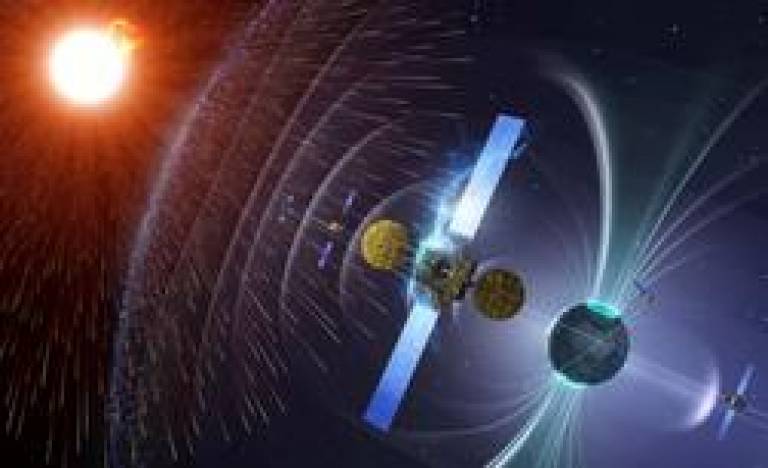New research publication: Understanding the Economic Impact of Space Weather
28 March 2017
The Sun and conditions in space that contribute to space weather can impact on human activity and technology both in space, in the air and on Earth.
 In 1859, the largest space weather event ever recorded occurred, known as the Carrington event. In addition to the global aurora, telegraph operators reported sparks from their equipment and fires caused by the power surge. That happened at a time when technology was
In 1859, the largest space weather event ever recorded occurred, known as the Carrington event. In addition to the global aurora, telegraph operators reported sparks from their equipment and fires caused by the power surge. That happened at a time when technology was
much less advanced than it is today. More recent documented impacts range from damage to power grids leading to black-outs and disruption to mobile networks and global navigation satellite systems. While understanding of such impacts has grown, there remains a huge amount of uncertainty around the economic effects of space weather.
Modern society is yet to experience a Carrington-level space weather event, and so projections of economic impact will therefore be subject to uncertainty. Additionally, quantifying technical impacts fundamentally relies on the willingness of industry to provide appropriate data, and this often conflicts with commercial activities. Since exposure to space weather risk is only likely to increase as the world become more technological and globally interconnected, urgent effort is required to address this tension. Co-author, Dr. Robert Wicks, of UCL's Institute for Risk and Disaster Reduction (IRDR) and Department of Space and Climate Physics, warns that "Government and industry should take note of the potential impacts and manage these risks accordingly."
Read the full report: http://onlinelibrary.wiley.com/doi/10.1111/risa.12765/abstract?campaign=wolearlyview
UCL IRDR and the Department of Space and Climate Physics are now accepting applications for the unique MSc in Space Risk and Disaster Reduction.
Picture title and credit: Artists impression of space weather impact on satellites: ESA - Pierre Carril.
 Close
Close






